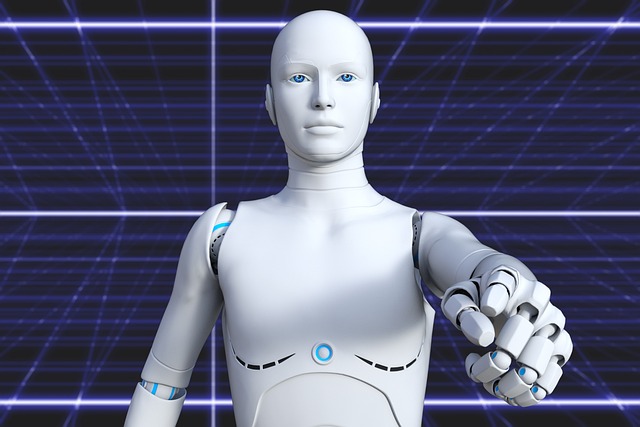# The Impact of AI Technology on Society: Transforming Work, Communication, and Daily Life Experiences
Artificial Intelligence (AI) technology has become an integral part of modern society, reshaping the landscape of work, communication, and daily life experiences. As we delve into the multifaceted impact of AI, it becomes evident that its influence extends far beyond mere automation. This article explores how AI is transforming these critical areas, examining both the opportunities it presents and the challenges it poses.
## Revolutionizing the Workplace
One of the most significant transformations brought about by AI technology is in the workplace. Organizations across various sectors are increasingly adopting AI-driven solutions to enhance productivity and efficiency. Automation of routine tasks has allowed employees to focus on more strategic and creative endeavors. For instance, AI tools can handle data entry, scheduling, and inventory management, freeing up human resources for high-value tasks that require critical thinking and problem-solving skills.
Moreover, AI is redefining job roles and creating new opportunities. With the rise of machine learning and data analytics, there is a growing demand for professionals skilled in these areas. Companies are investing in training programs to equip their workforce with the necessary skills to thrive in an AI-driven environment. This shift not only enhances employee capabilities but also fosters a culture of continuous learning and adaptation.
However, the integration of AI into the workplace is not without its challenges. Concerns about job displacement have emerged, particularly in industries reliant on repetitive tasks. While AI can increase efficiency, it may also lead to significant workforce reductions. Addressing these concerns requires proactive measures, such as reskilling initiatives and social safety nets to support those affected by technological changes. The balance between leveraging AI for productivity and ensuring job security remains a critical discussion point in the ongoing evolution of work.
## Enhancing Communication
Communication has also been profoundly affected by the advent of AI technology. Chatbots and virtual assistants are now commonplace, providing immediate responses to customer inquiries and facilitating seamless interactions. These AI-driven tools can handle a multitude of queries simultaneously, improving response times and customer satisfaction. Businesses that implement AI in their communication strategies often find that they can provide a more personalized experience for their clients, enhancing loyalty and engagement.
Beyond customer service, AI is transforming interpersonal communication as well. Language translation tools powered by AI are breaking down language barriers, enabling individuals from different linguistic backgrounds to communicate effortlessly. This democratization of communication fosters greater collaboration across cultures and geographies, paving the way for a more interconnected world.
Nonetheless, the rise of AI in communication also raises ethical considerations. Issues such as data privacy, misinformation, and the potential for biased algorithms necessitate careful scrutiny. As AI systems learn from vast datasets, they can inadvertently perpetuate existing biases or misrepresent information. Vigilance in monitoring AI-driven communication tools is essential to ensure they serve as facilitators of genuine connections rather than sources of misunderstanding or division.
## Transforming Daily Life Experiences
The influence of AI technology extends into the fabric of daily life, fundamentally altering how individuals interact with their environment. Smart home devices, powered by AI, have revolutionized the way we manage our households. From smart thermostats that learn user preferences to voice-activated assistants that control lighting and appliances, these technologies enhance convenience and energy efficiency. The integration of AI into everyday tasks not only simplifies routines but also contributes to a more sustainable lifestyle by optimizing resource usage.
Transportation is another area where AI is making significant strides. The development of autonomous vehicles promises to reshape how we commute, potentially reducing traffic congestion and accidents. AI algorithms can analyze real-time data to optimize routes and improve overall transportation efficiency. As cities begin to embrace smart infrastructure, the potential for AI to enhance urban mobility becomes increasingly apparent.
Despite the promising advancements, daily life experiences mediated by AI also present challenges. Privacy concerns are at the forefront, as smart devices often collect vast amounts of personal data. Users must navigate the fine line between convenience and privacy, making informed choices about the technologies they adopt. Furthermore, the reliance on AI systems raises questions about human agency and decision-making. As we integrate AI into our daily lives, it is crucial to maintain a balance that preserves human oversight and ethical considerations.
## Conclusion
The impact of AI technology on society is profound and multifaceted, influencing work, communication, and daily life experiences. While the potential benefits of AI are vast, including increased efficiency, enhanced communication, and improved daily conveniences, it is essential to recognize and address the accompanying challenges. As we navigate this transformative landscape, a collaborative approach involving policymakers, businesses, and individuals will be crucial in harnessing the power of AI responsibly. By doing so, we can ensure that AI serves as a tool for positive change, enhancing our lives while safeguarding our values and rights.











